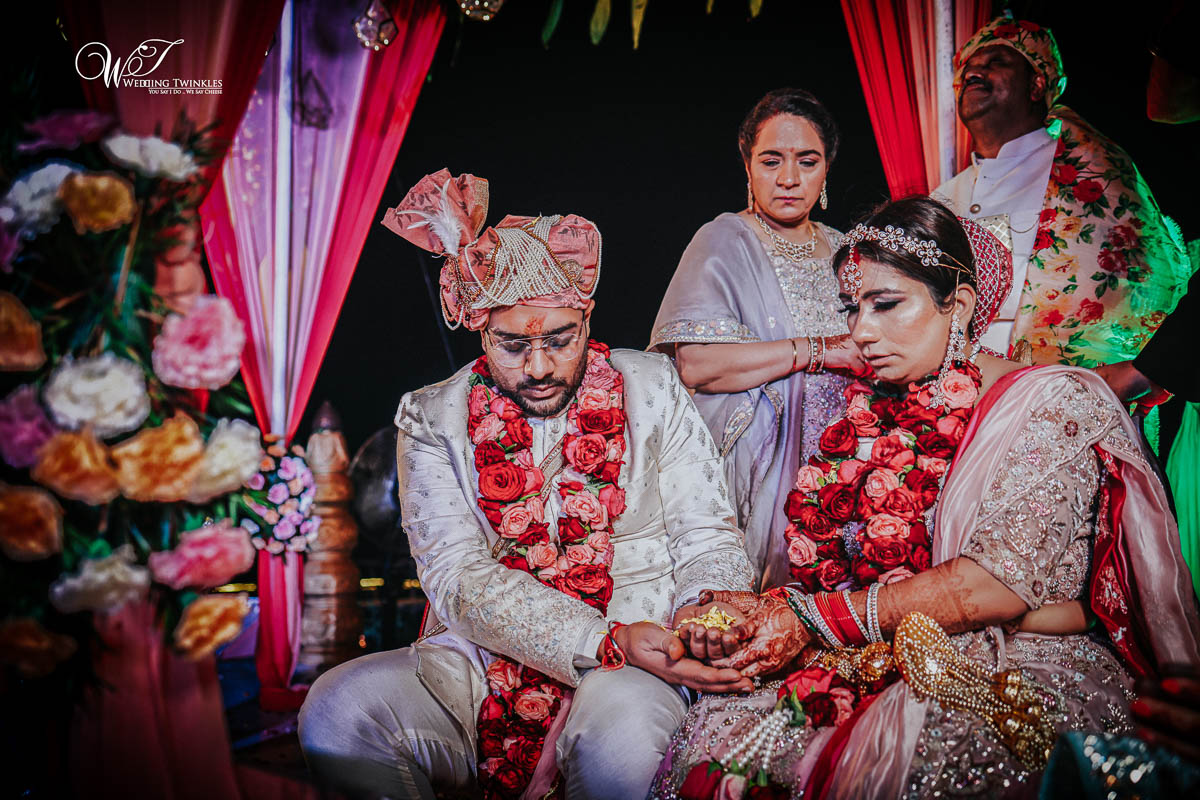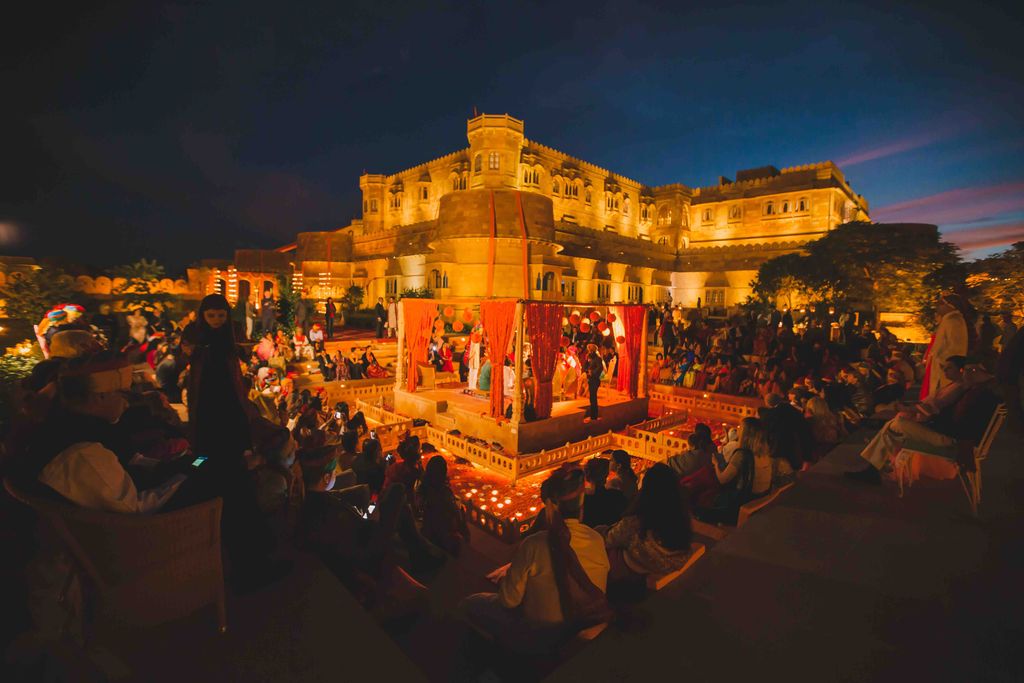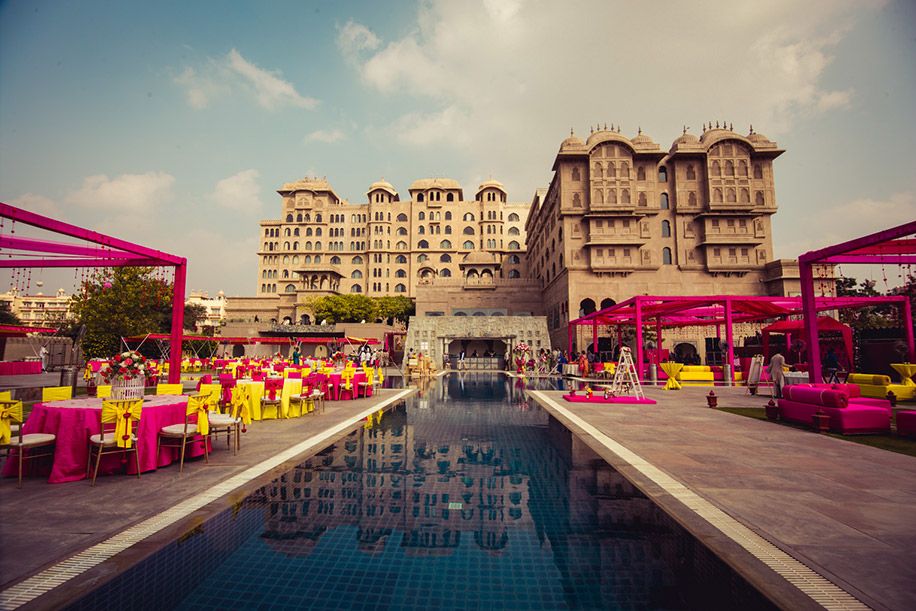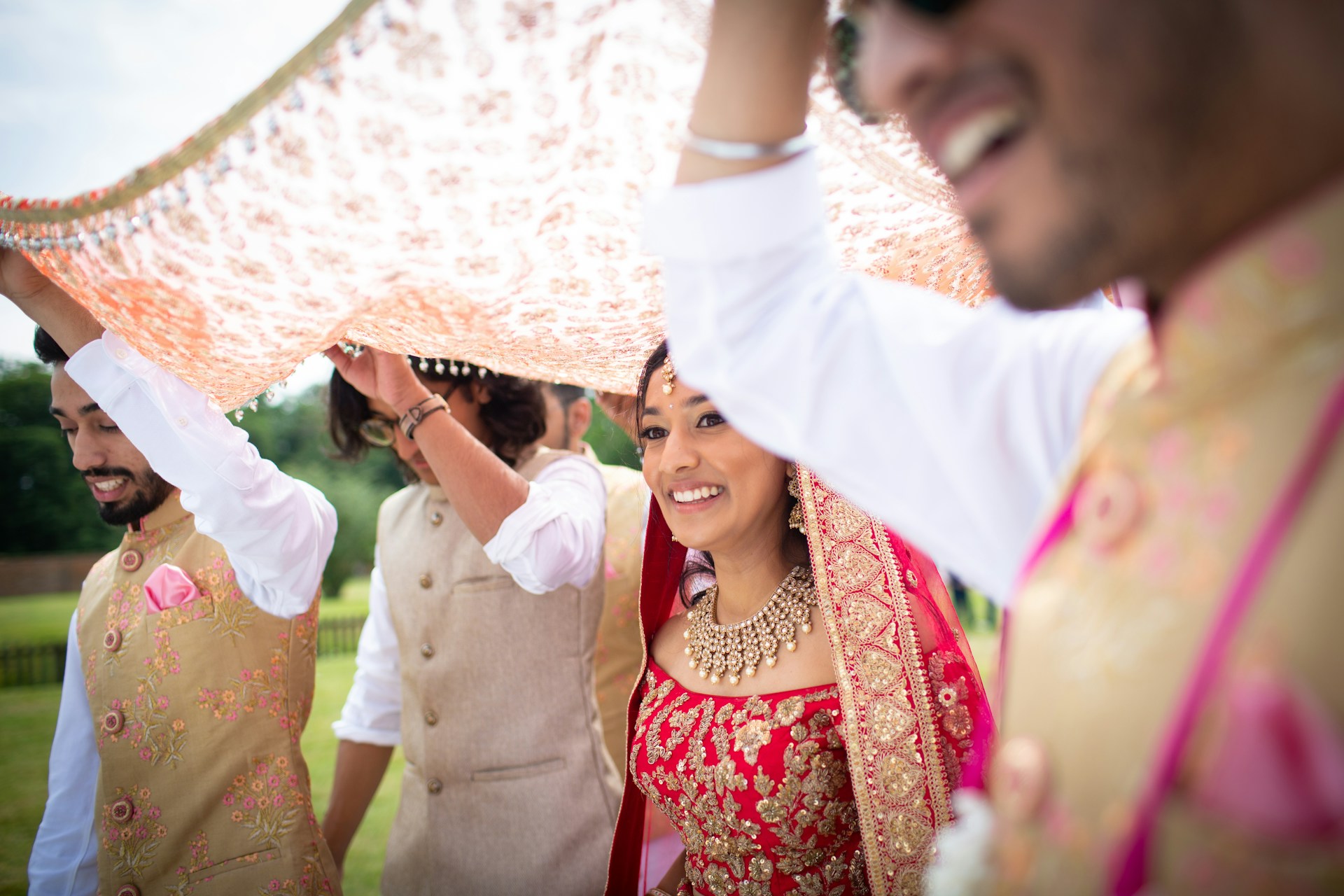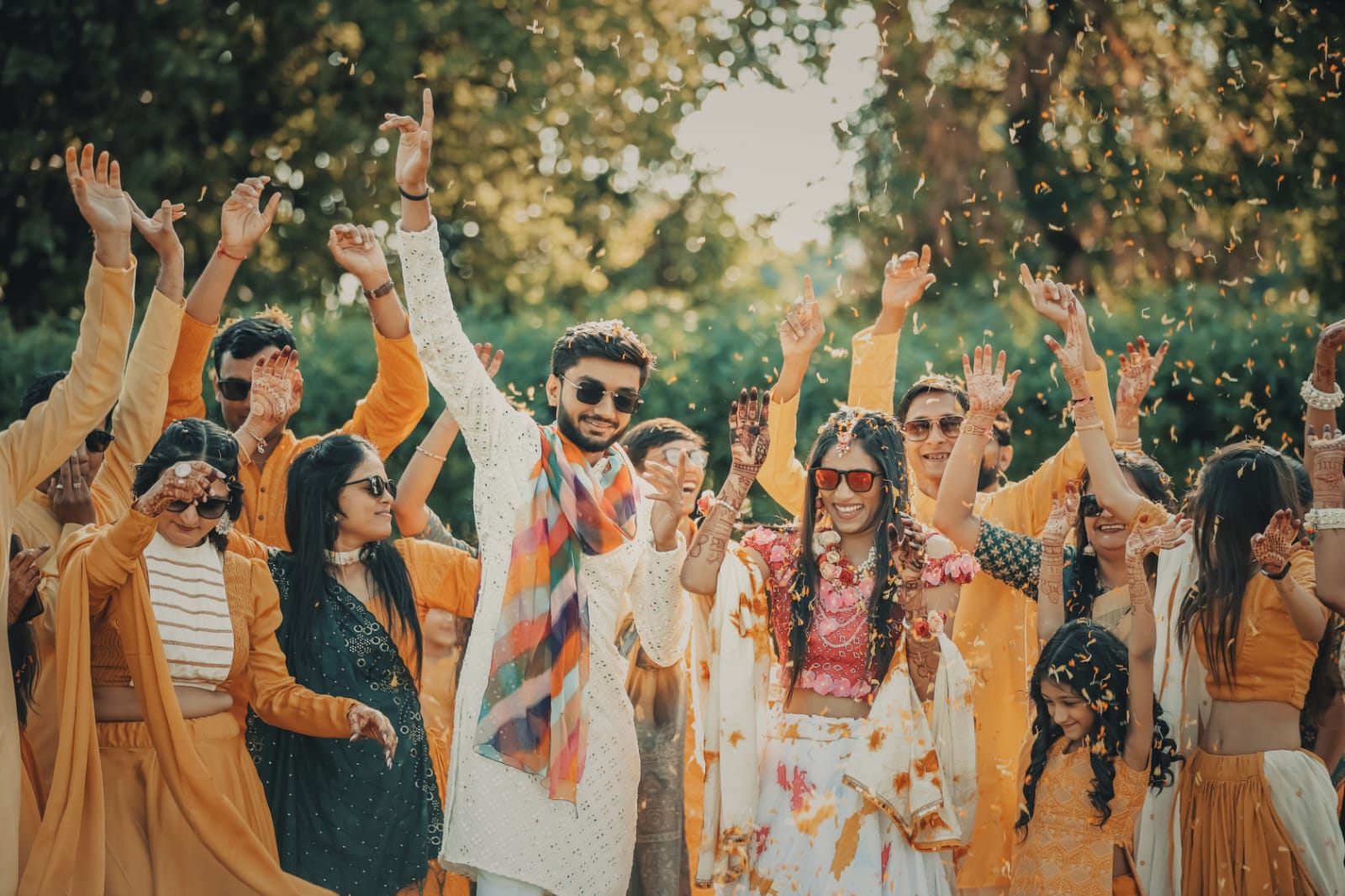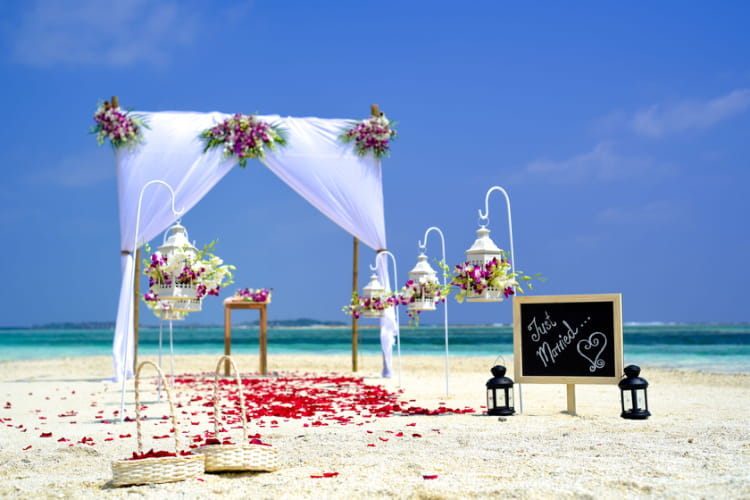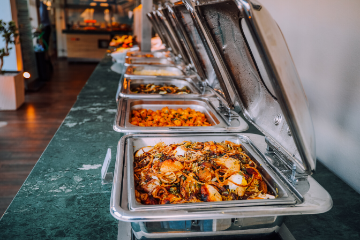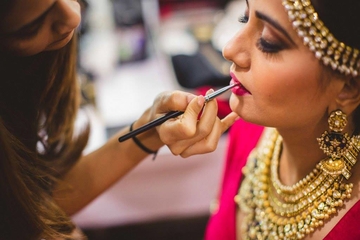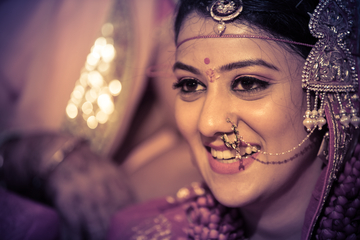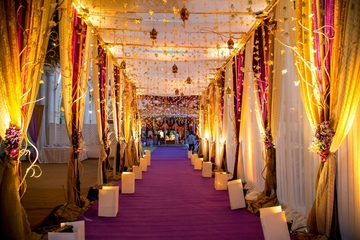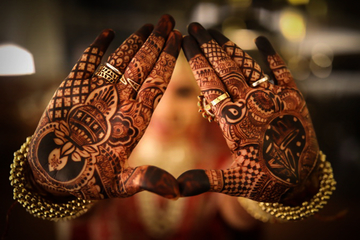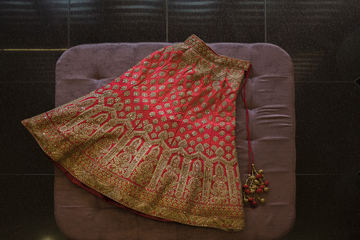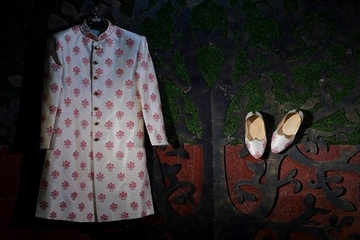Islamic Wedding Customs And Traditions
Muslim weddings are slightly different from a Hindu Wedding when it comes to rituals and customs, unlike Hindu weddings, they don’t choose an auspicious date to get married, in fact, they choose the date which is more convenient to the bride and the groom. The only requirement for a Muslim wedding is to sign a marriage contract which usually doesn’t take place in a Hindu wedding.
So, are you thrilled to have a look at the rituals of an Islamic wedding? Well, for that you’ve to keep on reading this article!
Rituals Of An Islamic Wedding
Imam Zamin
This is a pre-wedding ritual that involves a visit to the bride’s house from the groom’s mother. She brings gifts and sweets for the bride and an ominous gold coin, or silver coin. It is tied on the wrist of the bride making a formal welcome and acceptance in the family.
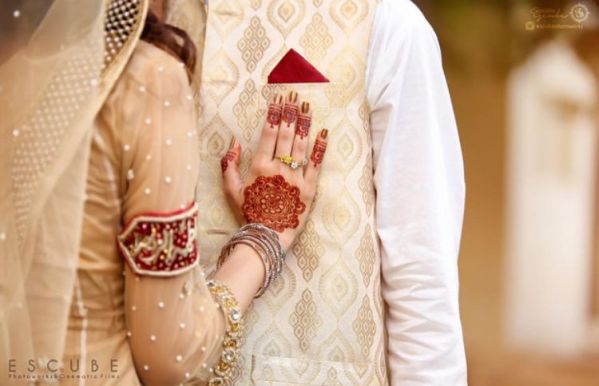
Image Courtesy: Escube
Mangni Ceremony
This is an engagement ceremony where the bride and groom will exchange rings and the whole family will fitness this and shower love with some exchange of gifts.
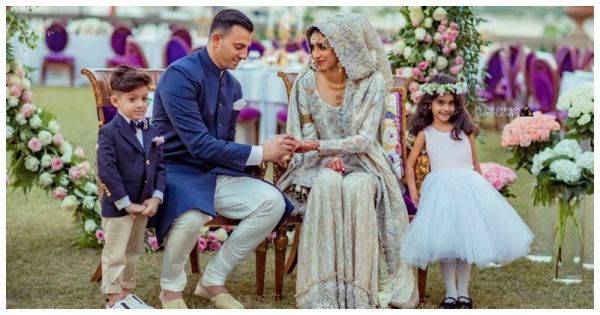
Manjha
The Manjha wedding ritual is similar to the Haldi ceremony, the bride and groom wear yellow clothes and celebrate at their respective homes. Here a turmeric paste is applied to the bride given by the groom’s family, the same is done at the groom’s place. Once they have applied the turmeric paste the bride and the groom are not allowed to leave their respective homes till the wedding day.
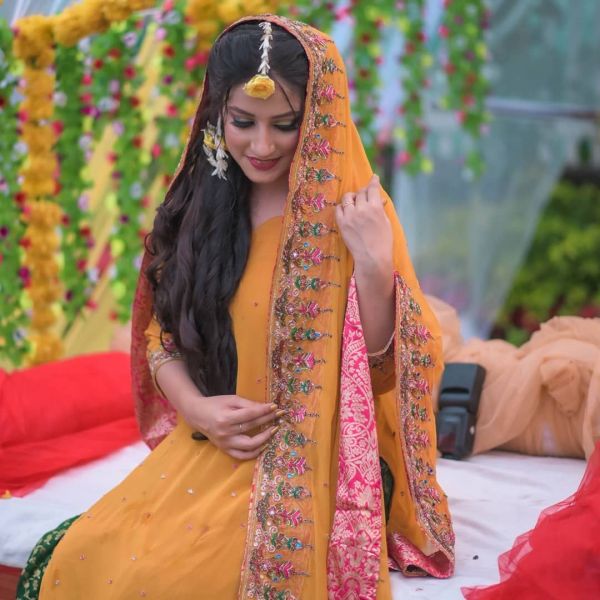
Mehendi Ceremony
This pre-wedding ritual is very important in a Muslim wedding, the bride and her female friends gather together and a professional is hired or a relative of the family who is good at Mehendi designs is called and the newest designs are applied to the bride’s hand and feet. The interesting part is the groom’s initials will be hidden in the Mehendi, which the groom should find on the wedding day.
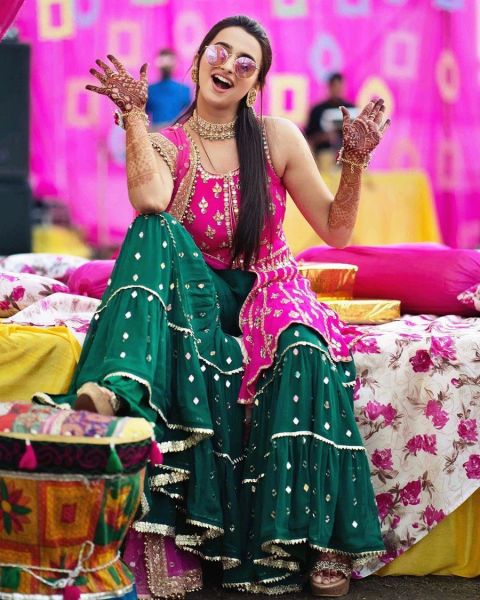
Sanchaq
This will count as the last pre-wedding ritual where male members from the groom’s family visit the bride’s home with gifts and sweets, and even the bride’s outfit which she’ll be wearing on her wedding day. This ritual signifies affection and support from the male members towards the bride.

Baraat
This ritual is the most exciting event of the wedding day, the entry of the groom to the wedding venue. He’ll be accompanied by his male friends and relatives with a loud procession declaring that the wedding is going to happen in few hours.
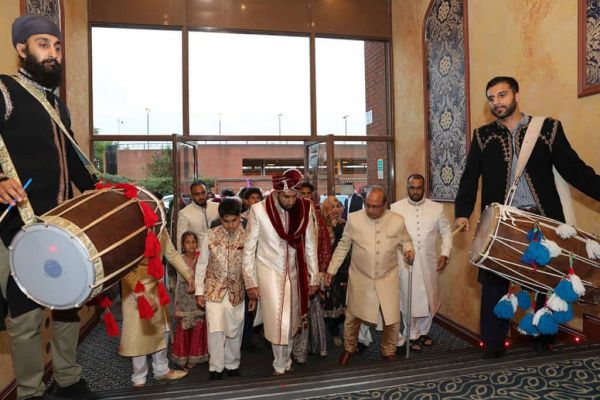
Nikaah
This is the primary wedding ritual performed by the Maulvi, prayers from the Quran are recited by the Maulvi. The bride’s father is The Wali, the groom’s father offers Mehr to the bride.
The Ijab-e-Qubool is the most pivotal Muslim wedding ritual, where the bride and the groom are kept in a separate room, the Maulvi asks both of them to consent and the bride and the groom have to say Qubool Hai thrice to give their consent, they have to say this thrice and are behind a hijab that separates them from each other during the process.

This is followed by a Nikaah Nama, an official marriage contract where the duties of the bride and groom, as per the Quran are recited in the presence of two witnesses each from the bride and the groom’s family. After the official marriage contract is signed, a Khutba is recited, followed by married vows in the Quran.
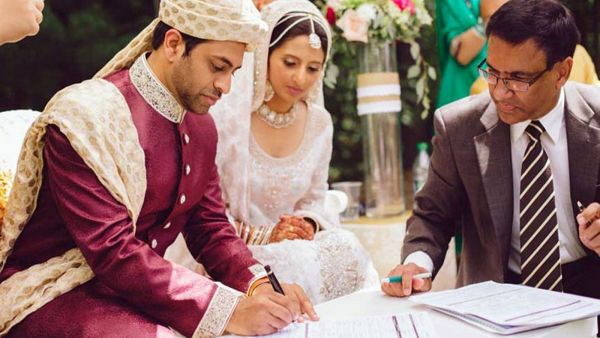
Arsi Mushraf
In this ritual finally, the bride and the groom look at each other through a mirror that is placed in between of them. This ritual is performed after the wedding, but still is a part of the wedding ritual.
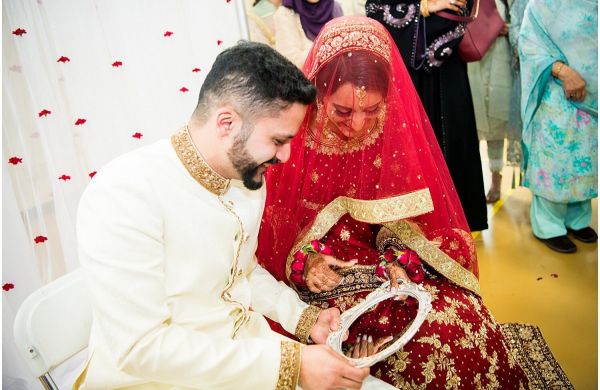
Rukhsat
This is the first post-wedding ritual, the bride waves goodbye to her family, it will be an emotional moment for her family, but once the bride arrives at her new home, she is greeted with a warm welcome from her mother-in-law and the holy Quran is placed on the bride’s head to symbolize her duties.
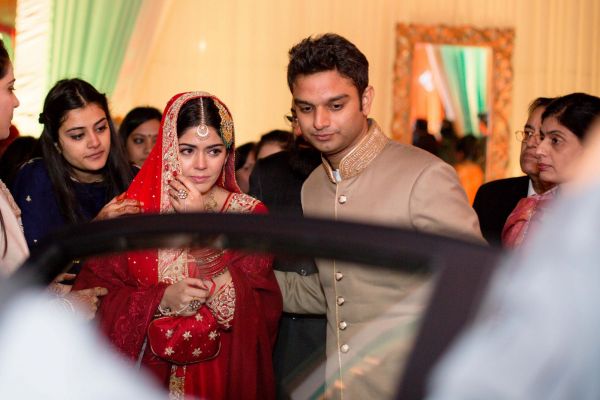
Walimah
This is a public declaration that says the wedding is done and this is basically a wedding reception party from the groom’s family, the bride is been introduced to the members of the extended family, relatives, and friends.
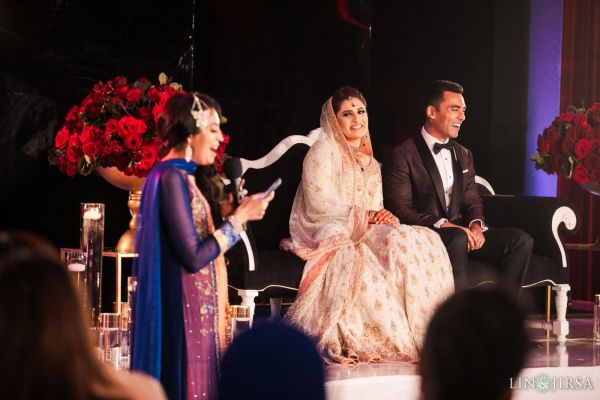
Image Courtesy: Lin&Jirsa
Chauthi
On the fourth day of the wedding, the bride and the groom visits the bride’s family. The groom is treated with lots of love and affection, and this will mark the end of all the formal Muslim wedding rituals between the two families.
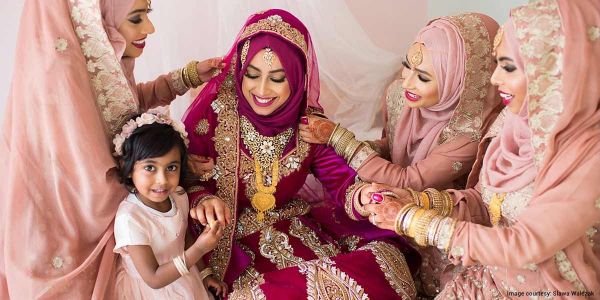
Here comes the end of the article, where were you thrilled by reading the Muslim wedding rituals? Do let us know in the comments!

Find Shaadi Baraati's Favourites. Get Wedding Planning help from Shaadi Baraati
Top Categories
Search By Keywords
Weddings Ideas
The Biggest Wedding Trends for 2025
The Ultimate Guide to Choosing the Perfect Wedding Planner in Lucknow
Websites Where You Can Sell Your Bridal Lehenga
College Sweethearts To Partner For Life
Important Things to Do As Soon As You Get Engaged
Your Go-To Weekend Getaway Awaits You At Saya Grand Resort And Spa
Coolest Props For Brides Wedding Pictures
Terracotta Jhumkas For Funky Mehndi Ceremony
Mithais With Some Flavourful Makeover
Most Viewed
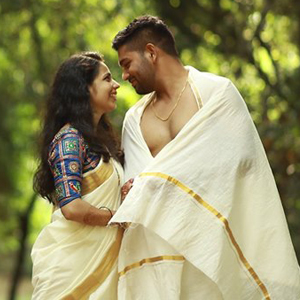
Mr & Mrs. Rathore
"Shaadi Baraati was very professional and dedicated. They have eased my wedding smooth and all the vendors were on time and even Shaadi Baraati Team was available on my wedding to ensure the quality services"
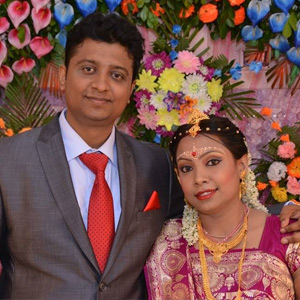
Mr & Mrs. Nandi
"We never thought planning a wedding would be this easy. Thankyou Shaadi Baraati for making life easy for us. We are so happy that we found your website"
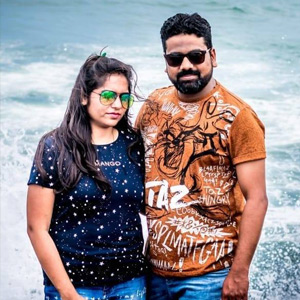
Mr & Mrs Bhardwaj
"Thank you Shaadi Baraati for hassle free events and making my dream come true"
Find the best wedding vendors with thousands of trusted reviews

Find trusted wedding services in all Indian cities & Book Verified Vendors in simple steps.
Create Your Free Wedding Website Now

Quickly Create and share all of your details in one place,Quickly customize your Wedding Website Templates.
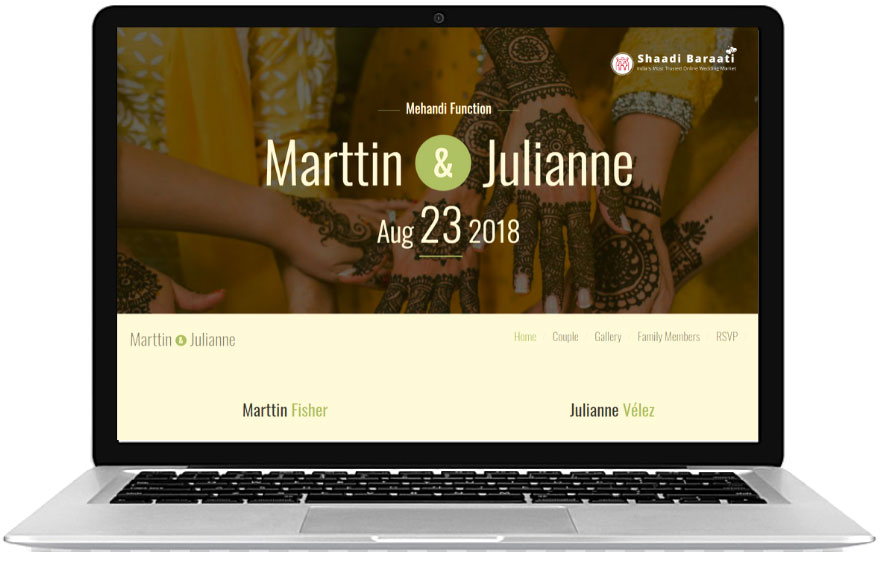
Mehndi Template 1
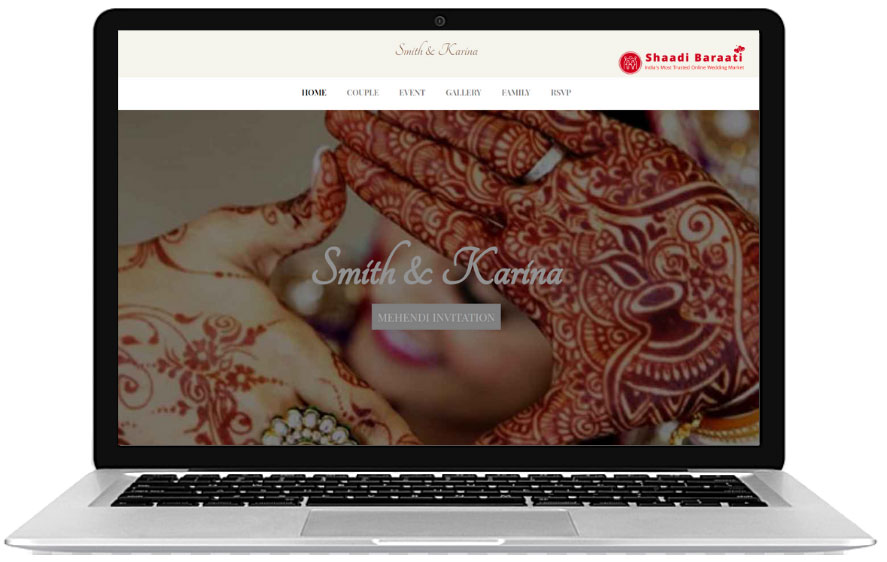
Mehndi Template 2
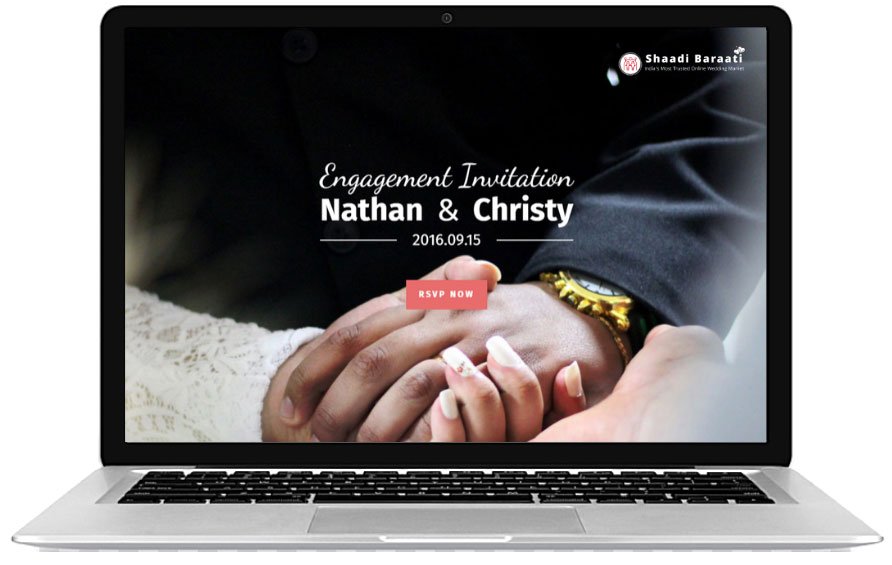
Engagement Template 1
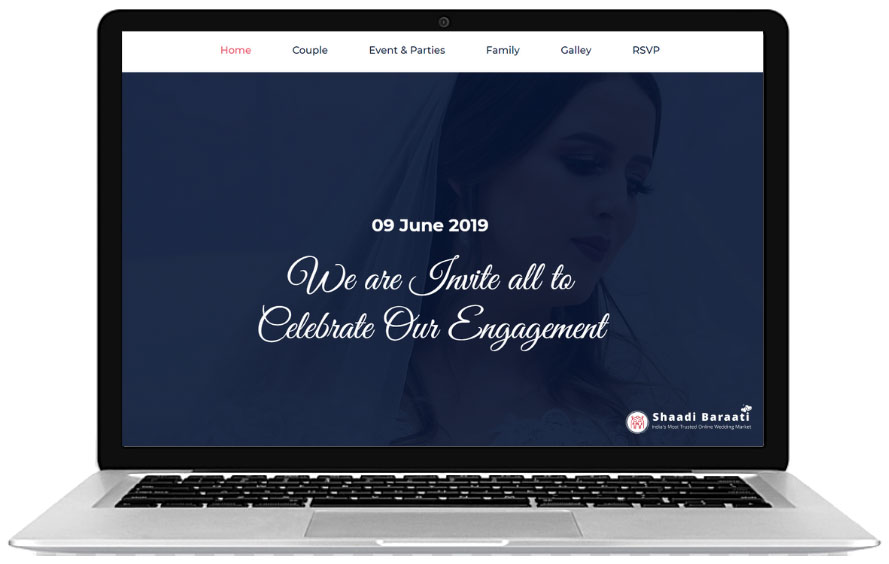
Engagement Template 2

Wedding Template 1
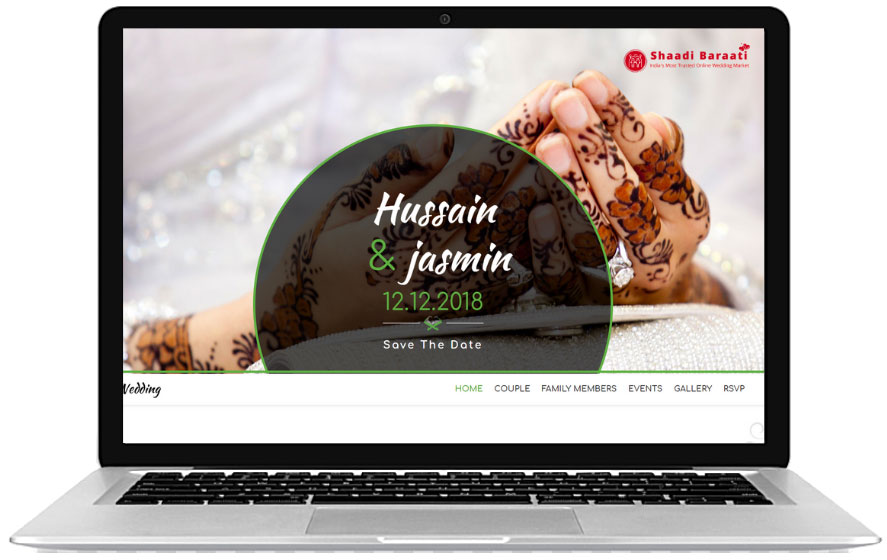
Wedding Template 2

Reception Template 1

Reception Template 2
